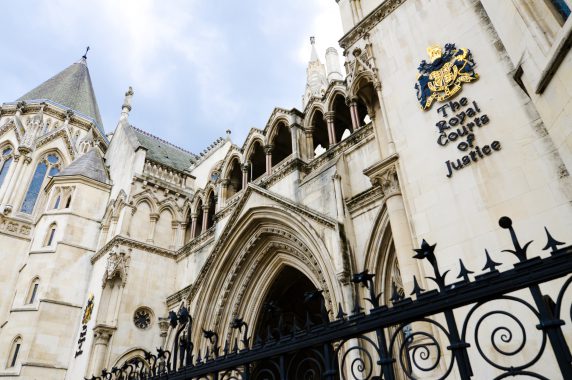High-profile court case over GMC physician associate scope begins

A legal case against the GMC over its refusal to set an official scope of practice for physician associates will begin at the High Court today.
Anaesthetists United (AU) is the group bringing the judicial review, along with the parents of Emily Chesterton, a 30-year-old woman who died after seeing a PA in general practice who she believed was a GP.
The hearing will take place before Mrs Justice Lambert at the Royal Courts of Justice on Wednesday and Thursday this week.
Last year, the BMA committed to financially support the AU’s case against the GMC, while the Doctors’ Association UK donated £30,000 to the group’s fundraising campaign.
The BMA recently lost its own High Court case against the GMC over its use of the term ‘medical professionals’ to describe PAs.
This was determined by the same High Court judge, Mrs Justice Lambert, who dismissed all three of the BMA’s claims.
But today, the doctors’ union announced that it is appealing this decision.
In January, the High Court judge who granted AU permission to proceed to a judicial review instructed that the hearing take place on an ‘expedited basis’ since it ‘raises serious issues of importance’ to healthcare professionals and patients.
The legal case is aiming to achieve ‘clear and enforceable guidance’ setting out what PAs and anaesthesia associates (AAs) ‘can and cannot do’, and argues that the GMC has a statutory duty to set those standards.
Pulse revealed last month that the GMC has spent over £55,000 so far on defending legal action from both AU and the BMA over the regulation of physician associate.
BMA council chair Professor Philip Banfield said today that Brendon and Marion Chesterton’s experience of losing a child ‘in such tragically avoidable circumstances’ is ‘something no parent should ever have to experience’.
He continued: ‘As we begin this court case today, we are saying simply that there must be no more stories like Emily’s. When our patients need to see a doctor, they must know that they are seeing a doctor.’
Professor Banfield said: ‘At its heart the case is simple: the GMC is our medical regulator. It should have a duty to protect patients.
‘Yet it persistently declines to set out what PAs can and can’t do. There is no scope of practice, no clear guidance, and thus no way the GMC can claim it has ‘set standards’ in any manner that patients or other staff would regard as necessary to ensure patient safety.’
A GMC spokesperson said the regulator has been ‘very clear’ that it will regulate doctors, PAs and AAs as ‘three distinct professions, and that PAs should ‘always work under supervision’ and ‘practise within their competence’.
‘They will have a responsibility to clearly communicate who they are, and their role in the team,’ they added.
Earlier this year, Pulse explored the lack of a centrally-backed scope of practice for PAs, and the potentially conflicting advice around how GPs should supervise them.
The Government-commissioned safety review of PAs, due to report next month, will cover scope of practice, but it will not set a detailed scope by setting.
Portfolio careers
What is the right portfolio career for you?

Related Articles
READERS' COMMENTS [1]
Please note, only GPs are permitted to add comments to articles












As an absolute bottom line, I do not think there is any intelligent argument to be made for having patients not be fully aware of whether or not the person they are seeing in a consultation is a medical doctor or not. If we can’t agree on that as a benchmark, then I’m not sure where else there is to go.